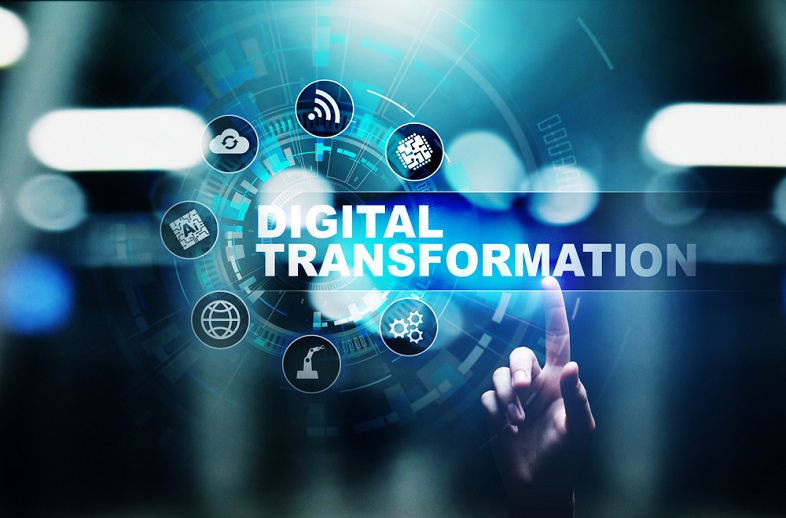A year ago, when we discussed the future of work, remote working may have been a trend to consider. Things have changed, though, with rapid HR digital transformation in place. Remote work is now the present globally, so it’s no longer the future.
What else has changed? What new ideas should you include in planning your future scenario? Granted, nothing is certain, but you cannot move forward without considering various outcomes and ensuring that your association can take full advantage of the opportunities while minimising the risks.
Predictions of the future of work
We’ve identified four emerging HR trends that could impact the future of work and create opportunities for your association and its professional development programs.
#1: Accelerated change increases the need for new skills
During the pandemic, companies found that their ability to change direction and adapt to new circumstances determined their profitability. Their employees must have the will, ability and resources to learn new skills quickly. Lifelong learning is now imperative for companies. Seize new opportunities by continually marketing the value of your e-learning programs to employers and employees.
uKnowva HRMS helps in adding new skills to employees’ portfolios. HR leaders and their managers add new training and learning sessions on the eLMS provided by the uKnowva HRMS. Hence the acceleration in change is mapped to a certain extent when new digital skills are learnt by employees beforehand.
#2: New leadership skills are required
The pandemic revealed which leaders were equipped to handle change and which were not. Some people have the skills to manage remote teams; others still struggle with this responsibility. The people who are good at managing stable systems and processes aren’t necessarily the ones who can lead a team through times of change. The most successful leaders will be those who can deal with uncertainty.
Leaders need to be able to weigh priorities and keep an eye on both profit and people. They need to increase their empathy to stay on top of their employees’ (and customers) needs during stress.
Leadership now requires you to step forward gracefully, stay creative and curious, and capitalise on emerging opportunities. Leaders must know how to cultivate an organisational culture where agility and innovation are valued and relationships are built on trust and empathy.
uKnowva HRMS is a perfect 360-degree solution for new-gen leaders. They can connect with their teammates online, even when they are going somewhere and have other meetings to attend. They can easily catch up with their subordinates to know about their work status of the day. Or else, they can check if their employees are performing well using the analytics at the backend for a quick audit or overview. There’s no need to disrupt the worker’s workflow at that moment. Leaders are independent, and so are the employees.
However, leaders can always suggest improvements to their employees based on intelligent reports. It all boils down to how receptive each employee is and how curiously they want to improve their performance for better results.
#3: Results matter; hours not worked
Working remotely has been difficult for managers who cling to hours worked rather than results produced. However, organisations knowingly or unknowingly introduced a results-based workplace (ROWE) do not face as many challenges.
ROWE creates “a work culture with an equal balance of responsibility and autonomy for every person.” ROWE only works if everyone understands the organisation’s goals and how their work fits into its strategy. It requires a culture of trust, which means hiring and promoting the right people.
uKnowva ensures that a culture of trust, togetherness and harmony is maintained throughout the organisation. With its self-serving portal, employees can assess and access information whenever required, removing dependencies on the other person.
The workflow remains intact, and the results are on track. Otherwise, team leaders openly share their concerns and points to discuss with the chat integration available at uKnowva. So, there is no back-and-forth. Time is utilised properly for every purposeful interaction on this tool by every user: leaders or team members. Hence a culture of trust, empathy, inclusion, and diversity is easy to build when implementing uKnowva HRMS.
#4: Millennials set the agenda
Millennials, the generation between 24 and 39 years old, are taking on management and leadership roles. By 2025 they will make up 75% of the working population. Millennials have always focused on work-life balance, which is now especially difficult when working from home. Know that this new generation of leaders influences corporate culture and workplace norms.
Working conditions have become more flexible due to the pandemic’s unusual demands on employees’ personal lives. But millennials have always valued this flexibility and will continue to do so. When they use uKnowva in their teams, it’s easy to be flexible regarding deliverables and working hours. Millennials and even Gen Z can reform their professional life and style according to their personal lifestyle. That’s the norm the new generation is out there to set and make it a new normal for other candidates – ready to be hired in the next year or so.
Conclusion
Many companies will invite their employees to return to the office in the coming months, but some will continue working from home. They may not be willing to brave public transportation or spend hours all day with other people. The same phenomenon can occur when in-person conferencing and other on-site training programs return.
The pandemic has caused an acceleration of the HR digital transformation. Within weeks, the way we operate and provide value to employees has changed and may never go back to how it was before. But with these changes comes opportunity as disruption continues to impact your industry’s workforce and new educational needs emerge.
























